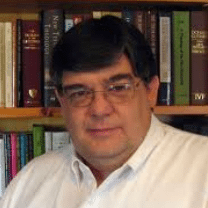
Repentance and Original Sin
In an 1899 article for Union Seminary Magazine, Warfield takes up the question, must we repent of original sin? He notes that the question is often asked triumphantly by those who oppose the doctrine, assuming that the question itself demonstrates the absurdity of the doctrine—the only sin we are conscious of is our own transgressions, and these alone demand repentance. But the question is sometimes asked also by earnest Christians seeking to perform their whole duty to the Lord. If all sin must be repented of, then in order to obtain forgiveness must I not repent of the sin inherited from Adam? And if not, am I not being frivolous with my sin?
Warfield advises that the answer must begin with a careful understanding of the terms “repentance” and “original sin.” If repentance simply means sorrow, we will answer the question in quite a different way than if repentance means amendment of life. Similarly, if by “original sin” we mean Adam’s personal sin made ours by an external act of imputation, our conclusion will be quite different than if by it we mean our own inborn depravity. And so Warfield counsels that we define the terms in their broadest possible way. Repentance must mean “not merely sorrow for and hatred of sin, but also the inward turning away from it to God, with full purpose of new obedience.” And by “original sin” we must indicate “not merely adherent but also inherent sin, not merely the sinful act of Adam imputed to us, but also the sinful state of our own souls conveyed to us by the just judgment of God.”
With this understanding of these terms in mind it seems clear that we must indeed “repent of original sin.” To be sure, we cannot repent of that first sinful act of Adam, but in fact our sympathies are with him. What we call original sin, “the corruption that is derived by us from our first parents,” not only comes to us as a penalty but also “abides in us as sin.” And surely, not only God but our enlightened conscience also must view this as sin and as abhorrent. God cannot look on it but with righteous indignation. The Arminians are wrong to speak of original sin merely in terms of “uncondemnable vitiosity,” for “whatever is vicious is by that very token condemnable.” In proportion, then, that our conscience is quickened and enlightened by the Holy Spirit and his Word, we will estimate our sinfulness as God estimates it and abhor and condemn it for the abhorrent corruption that it is.
This [according to Warfield] is precisely the self-arraignment we witness of Paul in Romans 7. Enlivened by the Spirit of God, he is in deep contrition not only for what he has done but for what he is. For such a man, “the very core of his repentance will be his firm determination not only to do better but to be better.” And so Warfield concludes that, “so far from its being impossible to repent of original sin, repentance, considered in its normative sense—not as an act of turning away from this sin or that sin, but of turning from sin as such to God—is fundamentally just repentance of ‘original sin.’” Warfield adds, “Until we repent of original sin, we have not, properly speaking, repented in the Christian sense at all.” It is essentially heathen to view sin atomistically, in terms only of specific transgressions. The Christian view “probes deeper” until he “finds behind the acts of sin the sinful nature.” Indeed, we have not truly repented until we have recognized “and felt the filthiness and odiousness” of our depraved nature and turned away from it “to God with a full purpose of being hereafter more conformed to his image as revealed in the face of Jesus Christ,” who alone never needed repentance
(From Fred G. Zaspel, The Theology of B.B. Warfield [Crossway, 2010], p.407-4-8)

